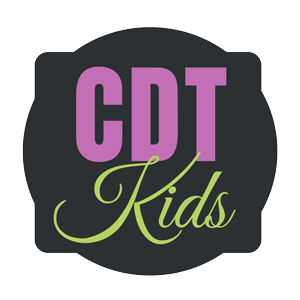Phonological development:
The gradual process of acquiring adult speech patterns is called phonological development.
Phonological processes:
All children make predictable pronunciation errors (not really “errors” at all, when you stop to think about it) when they are learning to talk like adults. These “errors” are sometimes called phonological processes, or phonological deviations.
Phonological Processes in Normal Speech Development
| PHONOLOGICAL PROCESS (Phonological Deviation) | EXAMPLE | DESCRIPTION |
|---|---|---|
| Context sensitive voicing | "Pig" is pronounced and "big" "Car" is pronounced as "gar" | A voiceless sound is replaced by a voiced sound. In the examples given, /p/ is replaced by /b/, and /k/ is replaced by /g/. Other examples might include /t/ being replaced by /d/, or /f/ being replaced by /v/. |
| Word-final devoicing | "Red" is pronounced as "ret" "Bag" is pronounced as "bak" | A final voiced consonant in a word is replaced by a voiceless consonant. Here, /d/ has been replaced by /t/ and /g/ has been replaced by /k/. |
| Final consonant deletion | "Home" is pronounced a "hoe" "Calf" is pronounced as "cah" | The final consonant in the word is omitted. In these examples, /m/ is omitted (or deleted) from "home" and /f/ is omitted from "calf". |
| Velar fronting | "Kiss" is pronounced as "tiss" "Give" is pronounced as "div" "Wing" is pronounced as "win" | A velar consonant, that is a sound that is normally made with the middle of the tongue in contact with the palate towards the back of the mouth, is replaced with consonant produced at the front of the mouth. Hence /k/ is replaced by /t/, /g/ is replaced by /d/, and 'ng' is replaced by /n/. |
| Palatal fronting | "Ship" is pronounced as "sip" "Measure" is pronounced as "mezza" | The fricative consonants 'sh' and 'zh' are replaced by fricatives that are made further forward on the palate, towards the front teeth. 'sh' is replaced by /s/, and 'zh' is replaced by /z/. |
| Consonant harmony | "Cupboard" is pronounced as "pubbed" "dog" is pronounced as "gog" | The pronunciation of the whole word is influenced by the presence of a particular sound in the word. In these examples: (1) the /b/ in "cupboard" causes the /k/ to be replaced /p/, which is the voiceless cognate of /b/, and (2) the /g/ in "dog" causes /d/ to be replaced by /g/. |
| Weak syllable deletion | Telephone is pronounced as "teffone" "Tidying" is pronounced as "tying" | Syllables are either stressed or unstressed. In "telephone" and "tidying" the second syllable is "weak" or unstressed. In this phonological process, weak syllables are omitted when the child says the word. |
| Cluster reduction | "Spider" is pronounced as "pider" "Ant" is pronounced as "at" | Consonant clusters occur when two or three consonants occur in a sequence in a word. In cluster reduction part of the cluster is omitted. In these examples /s/ has been deleted form "spider" and /n/ from "ant". |
| Gliding of liquids | "Real" is pronounced as "weal" "Leg" is pronounced as "yeg" | The liquid consonants /l/ and /r/ are replaced by /w/ or 'y'. In these examples, /r/ in "real" is replaced by /w/, and /l/ in "leg" is replaced by 'y'. |
| Stopping | "Funny" is pronounced as "punny" "Jump" is pronounced as "dump" | A fricative consonant (/f/ /v/ /s/ /z/, 'sh', 'zh', 'th' or /h/), or an affricate consonant ('ch' or /j/) is replaced by a stop consonant (/p/ /b/ /t/ /d/ /k/ or /g/). In these examples, /f/ in "funny" is replaced by /p/, and 'j' in "jump" is replaced by /d/. |
Elimination of phonological processes:
Phonological processes are usually ‘gone” by the time a child is five years of age, though there is individual variation between children.
Ages by which Phonological Processes are Eliminated
| PHONOLOGICAL PROCESS | EXAMPLE | GONE BY APPROXIMATELY years ; months |
|---|---|---|
| Context sensitive voicing | pig = big | 3;0 |
| Word-final de-voicing | pig = pick | 3;0 |
| Final consonant deletion | comb = coe | 3;3 |
| Fronting | car = tar ship = sip | 3;6 |
| Consonant harmony | mine = mime kittycat = tittytat | 3;9 |
| Weak syllable deletion | elephant = efant potato = tato television =tevision banana = nana | 4;0 |
| Cluster reduction | spoon = poon train = chain clean = keen | 4;0 |
| Gliding of liquids | run = one leg = weg leg = yeg | 5;0 |
| Stopping /f/ | fish = tish | 3;0 |
| Stopping /s/ | soap = dope | 3;0 |
| Stopping /v/ | very = berry | 3;6 |
| Stopping /z/ | zoo = doo | 3;6 |
| Stopping 'sh' | shop = dop | 4;6 |
| Stopping 'j' | jump = dump | 4;6 |
| Stopping 'ch' | chair = tare | 4;6 |
| Stopping voiceless 'th' | thing = ting | 5;0 |
| Stopping voiced 'th' | them = dem | 5;0 |
Phonetic development:
In column 3, the term 'voiced' refers to the vibration of the vocal cords while the sound is being made. The term 'voiceless' is applied to sounds that are made without vocal cord vibration. The terms fricative, glide, stop, nasal,
Normal phonetic development
| Ages by which 75% of children tested in a study accurately used the speech sounds listed in Column 2 in single words. | Speech sounds | The manner in which the speech sounds are produced |
|---|---|---|
| 3 years | h as in he zh as in measure y as in yes w as in we ng as in sing m as in me n as in no p as in up k as in car t as in to b as in be g as in go d as in do | Voiceless fricative Voiced fricative Voiced glide Voiced glide Voiced nasal Voiced nasal Voiced nasal Voiceless stop Voiceless stop Voiceless stop Voiced stop Voiced stop Voiced stop |
| 3 years 6 months | f as in if | Voiceless fricative |
| 4 years | l as in lay sh as in she ch as in chew | Voiced liquid Voiceless fricative Voiceless affricate |
| 4 years 6 months | j as in jaw s as in so z as in is | Voiced affricate Voiceless fricative Voiced fricative |
| 5 years | r as in red | Voiced liquid |
| 6 years | v as in Vegemite | Voiced fricative |
| 8 years | th as in this | Voiced fricative |
| 8 years 6 months | th as in thing | Voiceless fricative |





